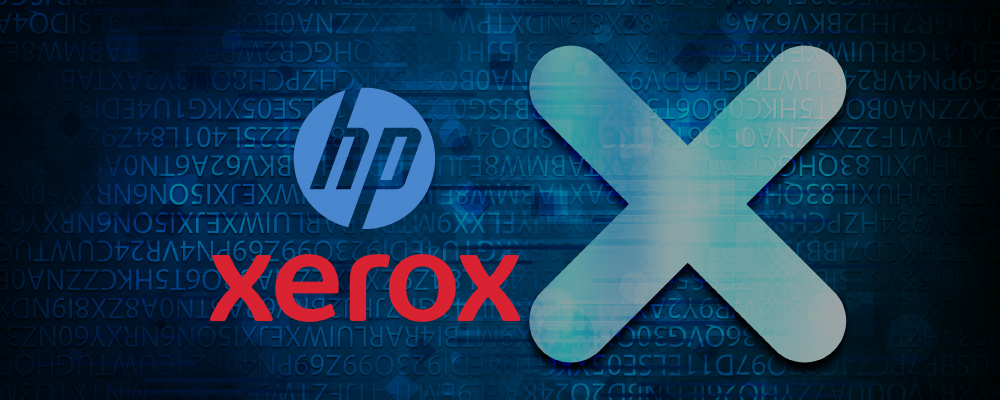New York (CNN Business)Hewlett-Packard Inc.’s Board of Directors has unanimously rejected a bid to be acquired by Xerox, though it did not completely shut down an effort by Xerox to merge the two aging former tech giants.
The Xerox (XRX) Board began discussing the possibility of buying HP (HPQ) earlier this month. Despite the fact that HP is more than three times its size, Xerox said it was generating cash by selling various stakes in former parts of its business. The Wall Street Journal also reported Xerox had been given the blessing by a major bank to receive lending for the transaction should the deal go through. Xerox sent an unsolicited acquisition proposal on November 5.
Still, the HP Board felt Xerox’s offer “significantly undervalued” the company, according to a letter sent to Xerox Vice Chairman and CEO John Visentin Sunday. Xerox offered to buy HP for $33.5 billion or $22 per share — $17 in cash and 0.137 in Xerox shares for each HP share — a deal that values HP above its nearly $30 billion market cap.
“Our Board of Directors has reviewed and considered your unsolicited proposal dated November 5, 2019 at a meeting with our financial and legal advisors and has unanimously concluded that it significantly undervalues HP and is not in the best interests of HP shareholders,” HP said in the letter. “The Board also considered the highly conditional and uncertain nature of the proposal, including the potential impact of outsized debt levels on the combined company’s stock.”
HP’s Board said in the letter it has “great confidence” in the company’s strategy and ability to “continue driving sustainable long-term value.”
But the company didn’t entirely quash the possibility of a merger with Xerox.
Xerox did not immediately respond to a request for comment.
The two storied American technology companies have both spun off their big money-making ventures in recent years, leaving behind aging printing businesses that remain profitable. But those earnings are dwindling.
HP had surprised investors by growing faster than many had believed possible after its 2015 split with HP Enterprise, but it has struggled in recent quarters. Last month, the company announced it would cut between 7,000 and 9,000 jobs by 2020. HP also recently lost its former CEO Dion Weisler, who stepped down earlier this month for a family matter.
Likewise, Xerox relies on sales of copy machines and printers, mostly to corporations, for the bulk of its profits — and sales in that line of business are shrinking as companies’ operations become digitized.
Xerox argued in its proposal that the deal between the two similar businesses could yield cost savings of about $2 billion through a combined supply chain, distribution network and research and development team, and by “streamlining” other corporate functions.
HP may also receive some pressure to merge from Carl Ichan, who owns a 4.24% stake in HP in addition to his 10.6% stake in Xerox, the activist investor told the Wall Street Journal last week. Ichan told the Journal that a merger would allow the combined companies to cut costs and offer an improved set of printing products.
In its letter Sunday, the HP Board said it recognizes “the potential benefits of consolidation” and is open to “exploring whether there is value to be created for HP shareholders through a potential combination with Xerox.” However, the Board raised concerns about Xerox’s falling revenue over the past year, saying it “raises significant questions for us regarding the trajectory of your business and future prospects.”
But the HP Board said it is open to further discussing the possibility of a merger.
“We believe it is critical to engage in a rigorous analysis of the achievable synergies from a potential combination. With substantive engagement from Xerox management and access to diligence information on Xerox, we believe that we can quickly evaluate the merits of a potential transaction. We remain ready to engage with you to better understand your business and any value to be created from a combination,” the Board said.


Leave A Comment
You must be logged in to post a comment.